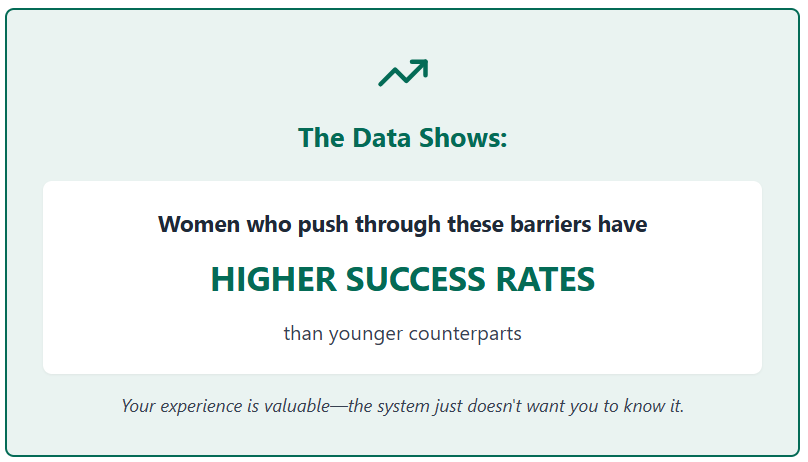Is Menopause Making You Less Motivated at Work?
You’re in your 40s or 50s. Maybe you’ve started scaling back at work, choosing “less stressful” roles, or avoiding new challenges. You’re wondering if it’s hormones killing your drive. But what if that’s not the real story?
INSIDE THIS ARTICLE
Discover why your “lost motivation” might actually be a career trap disguised as choice
Learn how financial pressures during menopause force women into survival mode at work
Get 3 strategies to reclaim your career momentum despite systemic barriers
Translation: You’re not choosing boring work. You’re trapped by circumstances.
The “Choice” That Isn’t Really a Choice
Studies tracking women’s career patterns revealed something striking. While women say they prioritize wellbeing over income during menopause years, researchers question whether this reflects genuine preference or external pressures like ageist stereotypes.
When women do have genuine choices—in countries with stronger social safety nets and more supportive institutions—their career patterns look completely different.
The cruel irony? Just when you have the most experience and accumulated wisdom, both gender stereotypes and ageism make it harder to take on new professional identities. But here’s the plot twist: women who do manage to push through these barriers actually have higher success rates than younger counterparts.
What This Means for Your Money and Career
If you’re feeling stuck: Recognize that your career constraints may be structural, not personal failings. The research emphasizes examining how cumulative disadvantage limits access to capital, networks, and institutional legitimacy for many women.
If you’re considering a change: The data suggests that “hybrid entrepreneurship”—keeping your job while developing other projects—might be ideal for managing the financial security needs of this life stage while exploring new directions.
If you’re planning your next decade: Working-class women and women of color, in particular, may enter new career phases not as a chosen reinvention but as a strategy for economic survival following career stagnation, caregiving disruptions, or exclusion from ageist labor markets.
Your Next Financial Power Moves
Understanding this research changes everything. Instead of accepting that midlife means career decline, you can:
Recognize constraint vs. choice - Separate what you actually want from what circumstances are forcing. Write down your ideal work scenario without financial limitations, then identify which barriers are truly immovable.
Seek structural solutions - Look for organizations and opportunities that address systemic barriers, not just offer surface-level flexibility. This might mean companies with strong menopause policies or entrepreneurship programs designed for midlife women.
Leverage your advantage - Remember that data shows higher success rates for women in later career stages. Your experience is valuable—don’t let anyone convince you otherwise.
The menopause years don’t have to mean career stagnation. But breaking free requires recognizing the difference between genuine choice and structural constraint—and demanding better from the systems around us.
Share this with 3 women who deserve to know they’re not crazy—they’re just navigating a system that wasn’t built for them.





